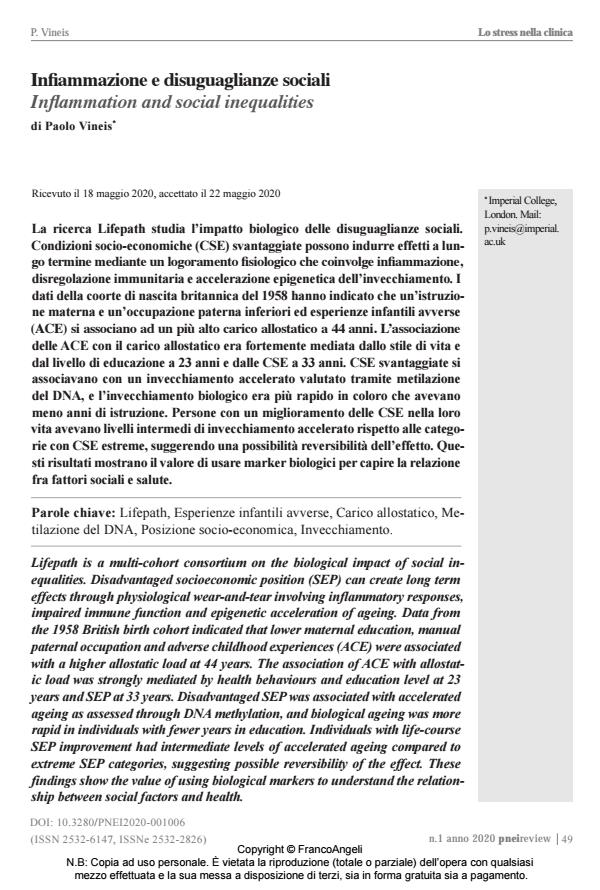Inflammation and social inequalities
Journal title PNEI REVIEW
Author/s Paolo Vineis
Publishing Year 2020 Issue 2020/1
Language Italian Pages 5 P. 49-53 File size 100 KB
DOI 10.3280/PNEI2020-001006
DOI is like a bar code for intellectual property: to have more infomation
click here
Below, you can see the article first page
If you want to buy this article in PDF format, you can do it, following the instructions to buy download credits

FrancoAngeli is member of Publishers International Linking Association, Inc (PILA), a not-for-profit association which run the CrossRef service enabling links to and from online scholarly content.
Lifepath is a multi-cohort consortium on the biological impact of social inequalities. Disadvantaged socioeconomic position (SEP) can create long term effects through physiological wear-and-tear involving inflammatory responses, impaired immune function and epigenetic acceleration of ageing. Data from the 1958 British birth cohort indicated that lower maternal education, manual paternal occupation and adverse childhood experiences (ACE) were associated with a higher allostatic load at 44 years. The association of ACE with allostatic load was strongly mediated by health behaviours and education level at 23 years and SEP at 33 years. Disadvantaged SEP was associated with accelerated ageing as assessed through DNA methylation, and biological ageing was more rapid in individuals with fewer years in education. Individuals with life-course SEP improvement had intermediate levels of accelerated ageing compared to extreme SEP categories, suggesting possible reversibility of the effect. These findings show the value of using biological markers to understand the relationship between social factors and health.
Keywords: Lifepath, Adverse childhood experiences, Allostatic load, DNA methylation, Socioeconomic position, Ageing.
Paolo Vineis, Infiammazione e disuguaglianze sociali in "PNEI REVIEW" 1/2020, pp 49-53, DOI: 10.3280/PNEI2020-001006